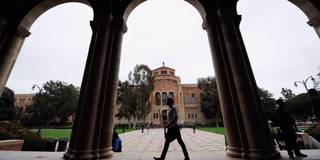
Can Universities Defy the New Nationalism?
In the long history of scientific discovery, the recent trend toward nativism – exemplified by the US ban on Chinese scholars in many fields – is an aberration. Those who want to participate in the scientific enterprise must be willing to open their borders to partners from elsewhere, including potential rivals.
STANFORD – The cosmopolitan values of higher education are in retreat before a rising wave of provincialism. International student enrollment at universities in the United States continues to decline, while branch campuses of American universities abroad are being reorganized or shut down. This trend has ominous implications – and not only for education and research.